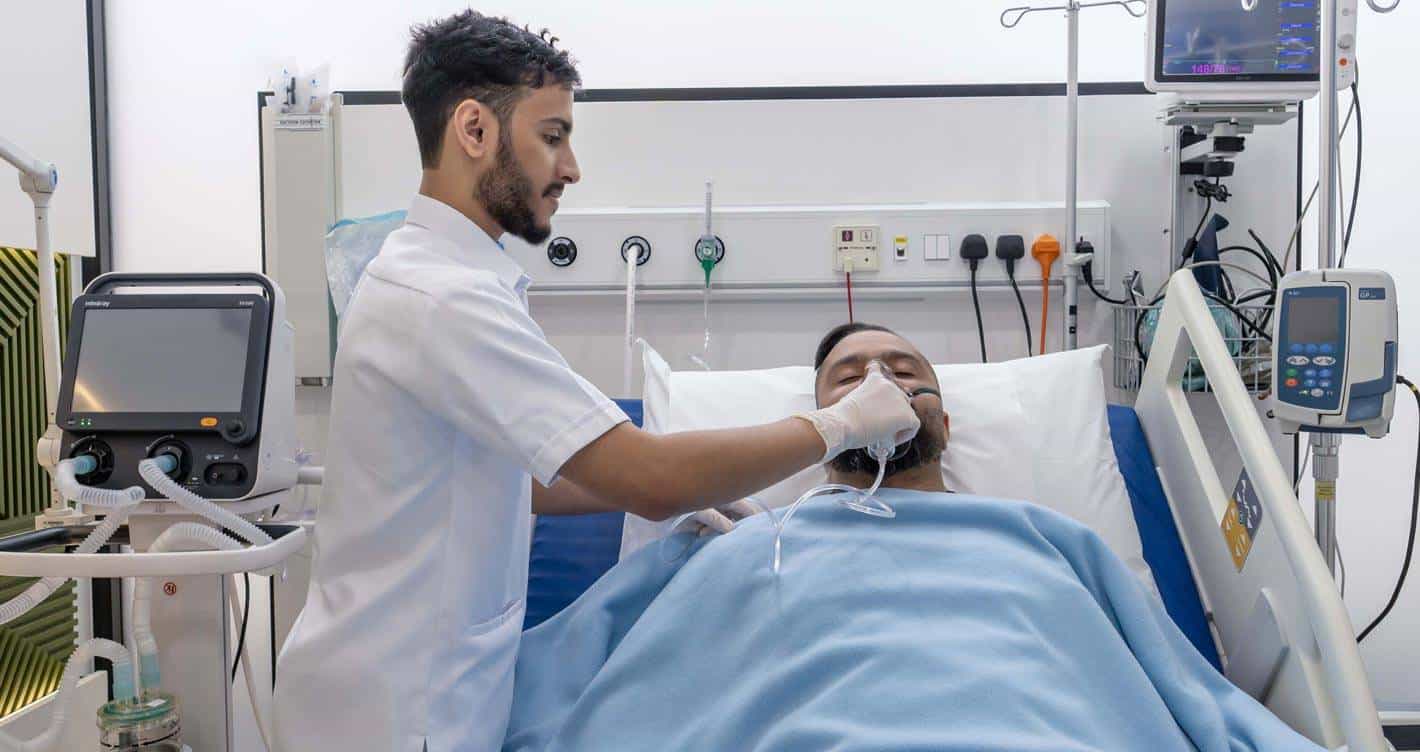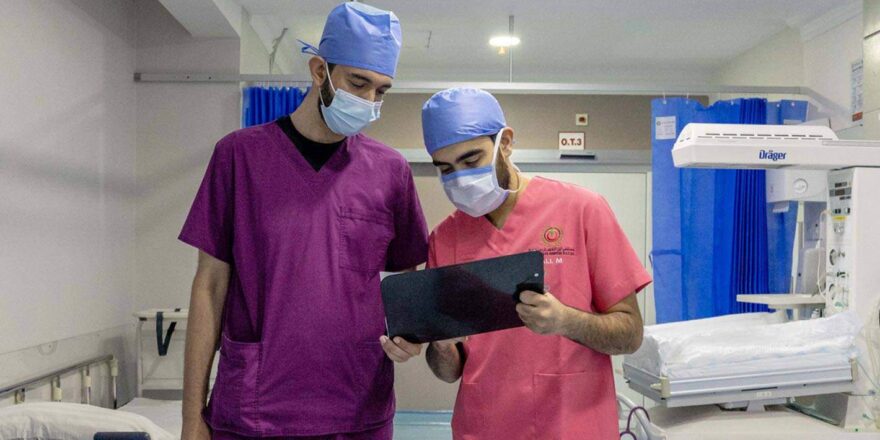In an era where healthcare choices are increasingly influenced by factors such as technology, accessibility, and cost, ethical medical care remains a fundamental pillar in ensuring high-quality patient outcomes. Ibn Al-Nafees Hospital in Manama, Bahrain, embodies this commitment to ethical practices as a core component of its vision. Since its inception in 2001, the hospital has been dedicated to delivering healthcare services with the highest standards of integrity, transparency, and respect for patient rights. This blog post explores the vital role of ethical medical care in shaping Ibn Al-Nafees Hospital’s vision and the principles guiding its operations.
1. Commitment to Transparency
Transparency is a cornerstone of ethical medical care, and Ibn Al-Nafees Hospital is steadfast in its commitment to open communication with patients. This involves:
- Clear Communication of Treatment Options: Patients are provided with detailed information about their medical conditions, available treatment options, and associated risks and benefits. This ensures that patients can make informed decisions about their care.
- Transparent Pricing: The hospital maintains transparency in its billing practices, offering clear and upfront information about the costs associated with medical procedures and treatments. This helps patients understand their financial responsibilities and avoids unexpected charges.
- Open Access to Medical Records: Patients have the right to access their medical records and can request copies for their personal use or to seek a second opinion. This openness fosters trust and allows patients to be actively involved in their healthcare decisions.
2. Patient-Centered Care
Ethical medical care prioritizes the patient’s well-being and autonomy. At Ibn Al-Nafees Hospital, this is reflected in:
- Respect for Patient Autonomy: The hospital upholds the principle of informed consent, ensuring that patients understand and agree to their treatment plans. Patients have the right to refuse or discontinue treatment if they choose, and their decisions are respected.
- Individualized Care Plans: Each patient’s care plan is tailored to their specific needs and preferences. This personalized approach takes into account the patient’s medical history, values, and lifestyle, leading to more effective and compassionate care.
- Empathy and Compassion: Healthcare professionals at Ibn Al-Nafees Hospital approach each patient with empathy and understanding. This compassionate care helps alleviate patient anxiety and fosters a supportive environment throughout the treatment process.
3. Ethical Decision-Making
Ethical decision-making is integral to providing high-quality medical care. Ibn Al-Nafees Hospital’s approach includes:
- Adherence to Ethical Guidelines: The hospital follows established ethical guidelines and standards set by medical and professional organizations. This ensures that all medical practices and decisions are based on accepted ethical principles.
- Multidisciplinary Approach: Complex cases are often reviewed by a team of specialists who collaborate to ensure that decisions are made with a comprehensive understanding of the patient’s condition. This multidisciplinary approach helps in making well-informed and ethical decisions.
- Continual Education and Training: Healthcare professionals at Ibn Al-Nafees Hospital undergo regular training in medical ethics and best practices. This ongoing education helps them stay informed about ethical issues and new developments in healthcare.
4. Patient Privacy and Confidentiality
Protecting patient privacy is a fundamental ethical obligation. Ibn Al-Nafees Hospital is committed to:
- Strict Confidentiality: The hospital ensures that patient information is kept confidential and is only shared with authorized individuals involved in the patient’s care. This protects patients’ personal and medical information from unauthorized access.
- Secure Record-Keeping: The hospital employs robust security measures to safeguard electronic and physical medical records. This includes secure data storage systems and protocols for handling sensitive information.
- Respect for Patient Dignity: Patient privacy is maintained throughout the care process, including during examinations, procedures, and discussions. The hospital’s facilities are designed to provide a respectful and private environment for all patients.
5. Equitable Access to Care
Ethical medical care also involves ensuring that all patients have equitable access to healthcare services. Ibn Al-Nafees Hospital is dedicated to:
- Non-Discriminatory Practices: The hospital provides care without discrimination based on race, gender, socioeconomic status, or other factors. All patients receive the same level of attention and quality of care, regardless of their background.
- Accessibility Initiatives: The hospital strives to make its services accessible to a broad population by offering various support services, including financial assistance programs and multilingual staff to cater to diverse patient needs.
- Community Outreach: Ibn Al-Nafees Hospital engages in community outreach programs to raise awareness about health issues and provide free or low-cost health services to underserved populations. This commitment to community health reflects the hospital’s ethical values and dedication to improving public health.
6. Commitment to Continuous Improvement
Ethical medical care involves a commitment to continual improvement and excellence. At Ibn Al-Nafees Hospital:
- Quality Assurance Programs: The hospital implements quality assurance and improvement programs to regularly evaluate and enhance the standards of care provided. This includes monitoring patient outcomes, conducting audits, and implementing best practices.
- Patient Feedback: The hospital values patient feedback and actively seeks input on their experiences. Patient satisfaction surveys and feedback mechanisms help identify areas for improvement and ensure that the hospital’s services meet patient expectations.
- Adapting to New Standards: The hospital stays abreast of evolving ethical standards and medical advancements. By incorporating new knowledge and practices, Ibn Al-Nafees Hospital ensures that its care remains at the forefront of ethical and clinical excellence.
Conclusion
The role of ethical medical care in Ibn Al-Nafees Hospital’s vision is fundamental to its mission of providing high-quality, patient-centered healthcare. By upholding principles of transparency, respect for patient autonomy, ethical decision-making, and confidentiality, the hospital ensures that every patient receives care that is not only effective but also respectful and compassionate.
Through its commitment to equitable access, continuous improvement, and community engagement, Ibn Al-Nafees Hospital sets a standard for ethical practices in healthcare. This dedication to ethical medical care reinforces the hospital’s reputation as a trusted and respected healthcare provider in Bahrain and beyond. For patients seeking compassionate, transparent, and ethically grounded medical care, Ibn Al-Nafees Hospital stands as a beacon of excellence and integrity in the healthcare field.




